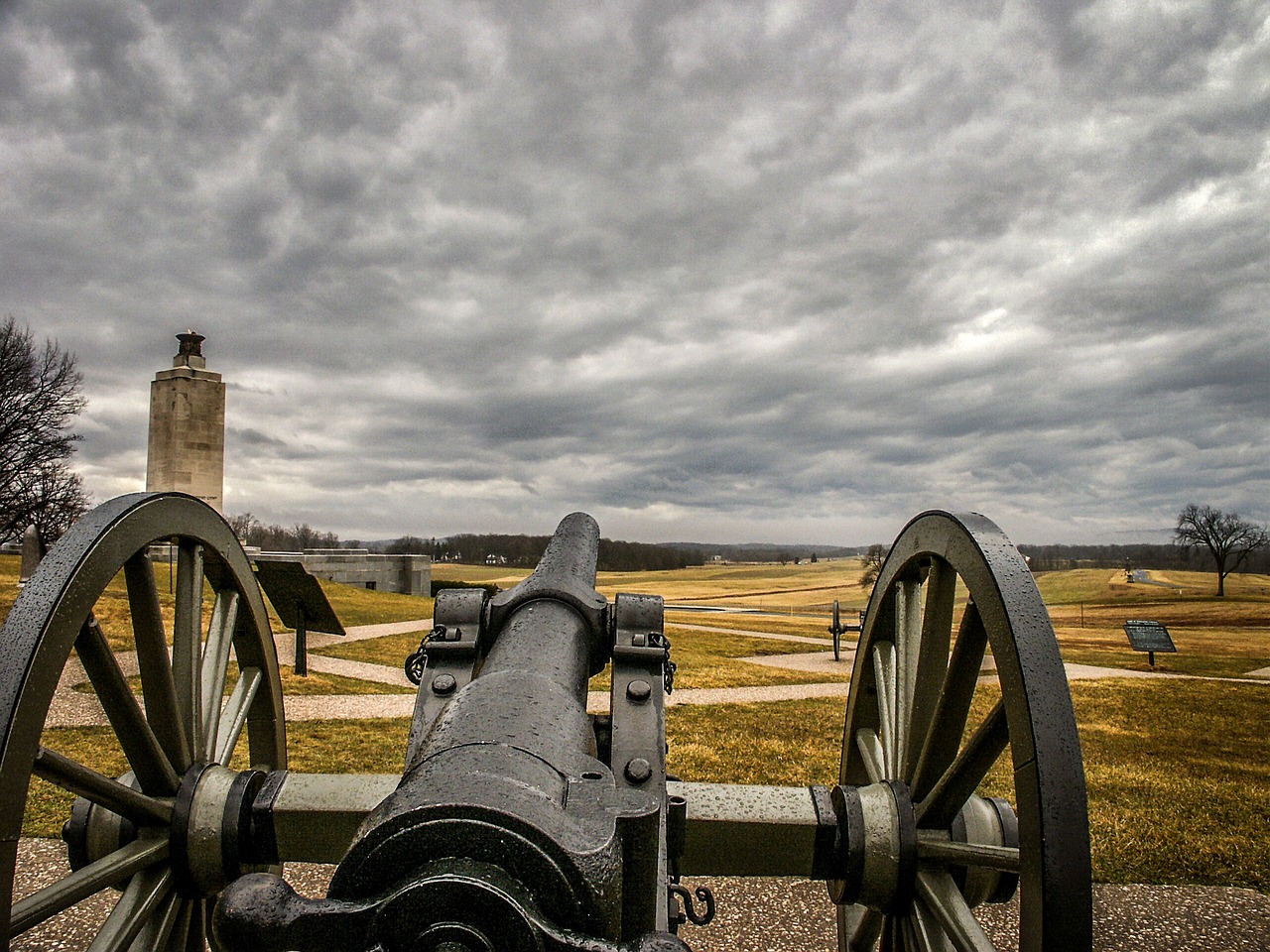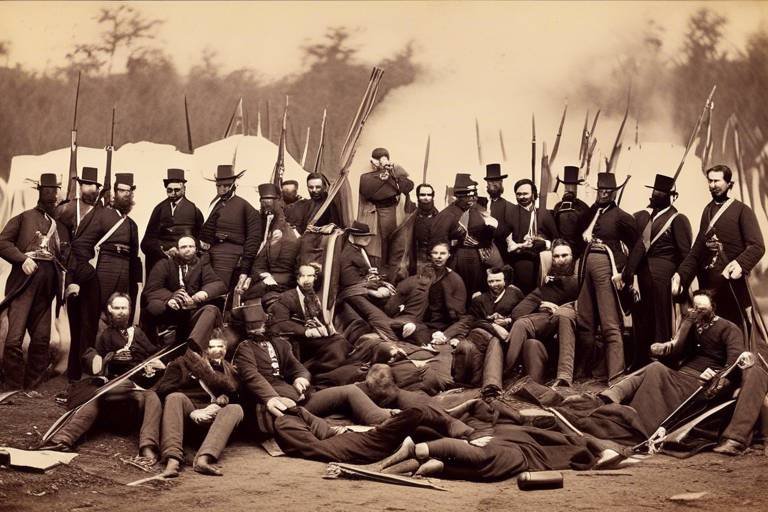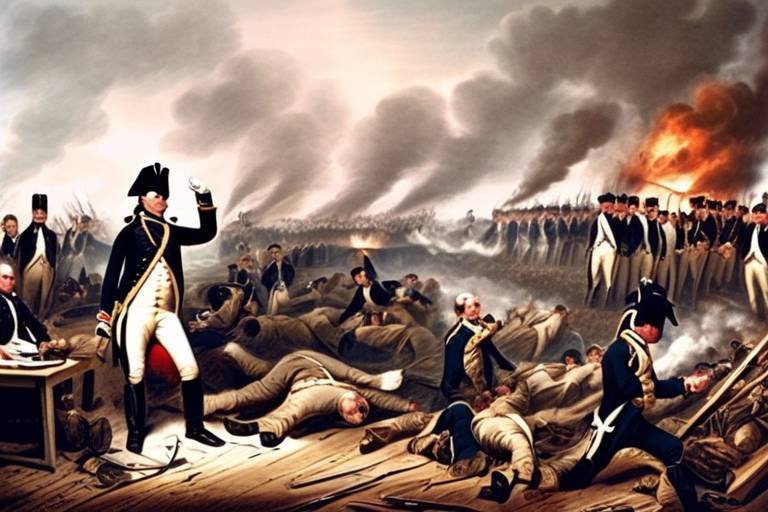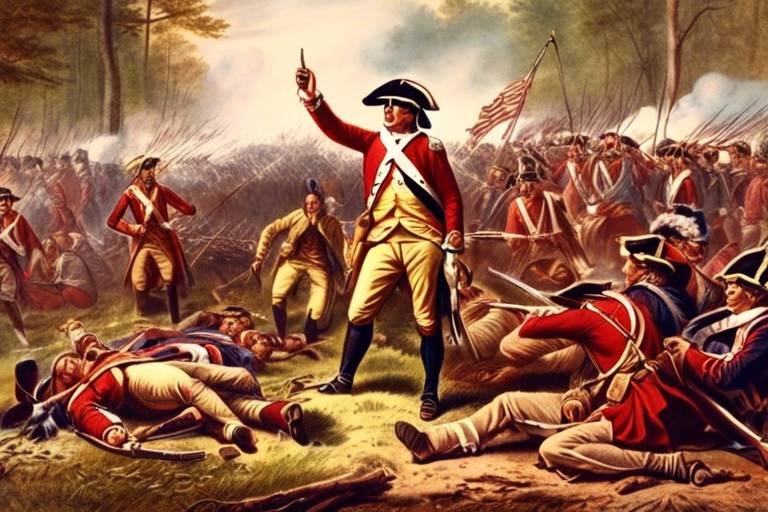The Historical Context of the American Civil War
Exploring the events, causes, and key players that shaped one of the most significant conflicts in American history, the Civil War, fought between 1861 and 1865, had far-reaching consequences on the nation's political, social, and economic landscape.

Antebellum America
Exploring the events, causes, and key players that shaped one of the most significant conflicts in American history, the Civil War, fought between 1861 and 1865, had far-reaching consequences on the nation's political, social, and economic landscape.
Antebellum America refers to the period before the Civil War, characterized by intense debates over slavery, states' rights, and escalating tensions between the Northern and Southern states. It was a time of significant social, economic, and political change, setting the stage for the conflict that would soon engulf the nation.
Delving into the complex factors that led to the outbreak of the Civil War, we encounter a web of interconnected issues. Economic disparities between the industrial North and agrarian South, the expansion of slavery into new territories, political disagreements over the balance of power, and the fundamental question of states' rights all contributed to the growing rift between the two regions.
Throughout the Civil War, key figures and leaders emerged to shape the course of history. Abraham Lincoln, the steadfast President of the Union, Jefferson Davis, the determined President of the Confederacy, and military strategists like Ulysses S. Grant and Robert E. Lee played crucial roles in determining the outcome of the conflict.
The Civil War was marked by a series of pivotal military campaigns and battles that defined its course. From the opening shots at Fort Sumter to the bloody clashes at Gettysburg and the surrender at Appomattox Court House, each engagement shaped the trajectory of the war and its ultimate conclusion.
The Emancipation Proclamation issued by President Lincoln in 1863 was a watershed moment in the Civil War, declaring freedom for enslaved individuals in Confederate territories. This proclamation not only altered the course of the war but also laid the groundwork for the broader struggle for civil rights and equality in America.
Examining the international dimensions of the Civil War reveals the global impact of this conflict. Foreign powers closely watched the unfolding events, diplomatic relations were tested, and the war's implications on trade and politics reverberated far beyond American shores, shaping the course of international relations.
The aftermath of the Civil War ushered in the Reconstruction era, a period marked by efforts to rebuild the war-torn nation, address the legacy of slavery, and redefine the political and social landscape of the United States. It was a time of both hope and challenges as the nation sought to heal its wounds and forge a new path forward.
Reflecting on the enduring legacy of the Civil War, we see its profound impact on American history, memory, and culture. The war's legacy continues to shape national identity, influence race relations, and fuel the ongoing quest for justice, reconciliation, and understanding in the United States.

Causes of the Civil War
The causes of the Civil War in America were deeply rooted in a complex web of issues that had been brewing for decades. One of the central causes was the contentious debate over slavery, which had long divided the nation along moral, economic, and political lines. The expansion of slavery into new territories further fueled tensions between the North and the South, as each region sought to promote its own interests and way of life.
Moreover, economic disparities between the industrialized North and the agrarian South exacerbated the conflict, leading to disagreements over tariffs, trade policies, and the balance of power in the federal government. The issue of states' rights also played a significant role, as Southern states asserted their autonomy and resisted what they perceived as federal overreach.
Political disputes, particularly regarding the extension of slavery into western territories, heightened the existing divisions and pushed the nation closer to the brink of war. The election of Abraham Lincoln in 1860, a staunch opponent of the spread of slavery, served as a catalyst for the secession of Southern states and the subsequent outbreak of hostilities.
Ultimately, the Civil War was not the result of a single cause but rather a culmination of interconnected factors that had been simmering for years. The clash of ideologies, economic interests, and regional loyalties all contributed to the eruption of conflict that would reshape the course of American history.

Key Figures and Leaders
During the tumultuous period of the Civil War, several key figures and leaders emerged, each playing a crucial role in shaping the course of the conflict and the future of the nation. Among these influential individuals were:
Abraham Lincoln: Known as the 16th President of the United States, Lincoln led the country through its darkest hours, guiding it towards unity and ultimately emancipating millions of enslaved individuals with the Emancipation Proclamation.
Jefferson Davis: Serving as the President of the Confederate States of America, Davis was a prominent figure in the secessionist movement and a staunch advocate for states' rights, leading the Southern states during the Civil War.
Ulysses S. Grant: Rising to prominence as the Union Army's commanding general, Grant's strategic brilliance and unwavering determination played a significant role in securing key victories for the Union forces, ultimately leading to the Confederate surrender.
Robert E. Lee: Renowned as the commanding general of the Confederate Army, Lee was a skilled tactician and respected leader who led the Southern forces in several major battles, including the Battle of Gettysburg.
These key figures and leaders, each with their unique perspectives and strategies, left an indelible mark on the history of the American Civil War, influencing its outcome and shaping the nation's future in profound ways.

Military Campaigns and Battles
The during the American Civil War were intense and pivotal in determining the outcome of the conflict. From the initial shots fired at Fort Sumter to the final surrender at Appomattox Court House, the war was marked by a series of significant engagements that shaped the course of history.
One of the most famous battles of the Civil War was the Battle of Gettysburg, fought in July 1863 in Pennsylvania. This three-day battle was a turning point in the war, with Union forces under General George Meade successfully repelling Confederate General Robert E. Lee's invasion of the North. The high casualties and strategic importance of Gettysburg made it a critical moment in the conflict.
Another crucial military campaign was the Vicksburg Campaign, led by Union General Ulysses S. Grant in 1863. The capture of Vicksburg, Mississippi, a key Confederate stronghold on the Mississippi River, gave the Union control of the vital waterway and split the Confederacy in two. Grant's successful siege of Vicksburg was a major victory for the Union forces.
Throughout the Civil War, both the Union and Confederate armies engaged in numerous battles across various theaters of operation. From the bloody struggles at Antietam and Shiloh to the siege of Petersburg and the naval battle at Mobile Bay, each confrontation had its own significance and impact on the overall course of the war.
One of the final battles of the Civil War was fought at Appomattox Court House in April 1865, where Confederate General Robert E. Lee surrendered to Union General Ulysses S. Grant, effectively ending the war. The surrender at Appomattox marked the beginning of the reunification of the nation and the start of the Reconstruction era.

Emancipation Proclamation and Civil Rights
The Emancipation Proclamation, issued by President Abraham Lincoln on January 1, 1863, was a pivotal moment in the American Civil War. This executive order declared all enslaved individuals in Confederate-held territory to be free. While it did not immediately free all slaves, as it only applied to areas in rebellion, it fundamentally transformed the nature of the war. The proclamation also paved the way for the eventual abolition of slavery throughout the entire country.
Moreover, the Emancipation Proclamation played a significant role in advancing the cause of civil rights. By framing the conflict as a struggle for freedom and equality, it inspired African Americans to join the Union army and fight for their liberation. This marked a crucial step towards recognizing the rights and humanity of formerly enslaved individuals, challenging the institution of slavery, and laying the groundwork for broader civil rights movements in the future.
Additionally, the Emancipation Proclamation had profound international implications. It garnered support for the Union cause from European powers, particularly Great Britain and France, who had been considering recognizing the Confederacy. By aligning the Union with the cause of freedom, the proclamation shifted global perceptions of the war and influenced diplomatic relations, ultimately helping to prevent foreign intervention on behalf of the Confederacy.

International Perspectives
The American Civil War was not just a domestic conflict; it reverberated across the globe, drawing attention and reactions from various international actors. European powers closely monitored the unfolding events, with some even considering intervention on behalf of the Confederacy to protect their economic interests in Southern cotton. The war's outcome had significant implications for global trade and diplomacy, as the Confederacy's defeat dealt a blow to European hopes of a divided United States that would be easier to manipulate for their benefit.
Moreover, the issue of slavery and its role in the Civil War captured the attention of nations worldwide. The moral and ethical debates surrounding slavery resonated beyond American borders, sparking discussions about human rights and freedom in other parts of the world. The Emancipation Proclamation, which declared all slaves in Confederate-held territory to be free, had a profound impact on international opinion, shaping perceptions of the Union cause as a fight for liberty and justice.
Diplomatic relations between the United States and foreign powers were strained during the Civil War, as European nations navigated the delicate balance of maintaining neutrality while pursuing their strategic interests. The Confederacy's efforts to secure recognition and support from European countries faced challenges, as the Union's diplomatic efforts worked to counter Confederate propaganda and maintain international alliances that favored the Union cause.
The international perspectives on the Civil War underscored the interconnected nature of global politics and the far-reaching consequences of internal conflicts on the world stage. The war served as a crucible for testing international relations and highlighted the complexities of balancing national interests with moral principles in the face of a humanitarian crisis like slavery. The echoes of the Civil War resonated far beyond American borders, shaping perceptions of democracy, freedom, and human rights on a global scale.

Reconstruction Era
The Reconstruction Era, following the end of the Civil War in 1865, marked a critical period in American history as the nation sought to heal and rebuild in the aftermath of the devastating conflict. This era was characterized by efforts to address the challenges of integrating the former Confederate states back into the Union, establishing new social and political structures, and defining the rights and status of newly freed African Americans.
One of the key aspects of the Reconstruction Era was the implementation of various Reconstruction Acts by the federal government, aimed at reorganizing the Southern states and ensuring civil rights for freed slaves. These acts included the establishment of military districts in the South, the extension of voting rights to African American men through the 15th Amendment, and the creation of the Freedmen's Bureau to provide assistance to newly emancipated individuals.
During this period, significant progress was made in advancing civil rights and creating a more inclusive society. However, the Reconstruction efforts faced opposition from white supremacist groups, resistance from Southern states, and political turmoil that ultimately led to the end of Reconstruction in 1877 with the Compromise of 1877.
The legacy of the Reconstruction Era continues to shape the ongoing struggle for racial equality and social justice in the United States. While the period was marked by both progress and setbacks, it laid the foundation for future civil rights movements and efforts to address the legacy of slavery and discrimination in American society.

Legacy of the Civil War
Reflecting on the enduring legacy of the Civil War in American history reveals a complex tapestry of consequences that continue to shape the nation to this day. The conflict, although officially ended in 1865, left a profound imprint on the American landscape, influencing not only the political and social structures but also the cultural fabric of the country.
One of the most significant legacies of the Civil War is its impact on national identity. The war fundamentally altered how Americans viewed themselves and their country. The notion of a unified nation was tested and redefined through the crucible of war, leading to a stronger sense of American nationalism that persists today.
Furthermore, the Civil War had a profound effect on race relations in the United States. While the abolition of slavery represented a crucial step towards equality, the deep-rooted prejudices and systemic injustices that fueled the war continued to shape the experiences of African Americans in the post-war era.
Moreover, the legacy of the Civil War is intricately intertwined with the ongoing quest for justice and reconciliation. The scars of the conflict, both physical and emotional, lingered long after the last shots were fired. Efforts to heal these wounds and address the lingering divisions have been ongoing, reflecting the enduring impact of the war on American society.
Looking beyond the borders of the United States, the legacy of the Civil War also reverberates on the global stage. The conflict had far-reaching implications for international relations, influencing how foreign powers viewed the United States and shaping diplomatic engagements in the post-war era.
In conclusion, the legacy of the Civil War is a multifaceted tapestry of consequences that continue to shape American society and its place in the world. As we reflect on this pivotal moment in history, it is essential to acknowledge the complexities of its legacy and the ongoing challenges it poses for the pursuit of a more just and equitable society.
Frequently Asked Questions
- What were the main causes of the Civil War?
The Civil War was primarily caused by deep-rooted issues such as slavery, economic differences, political disputes, and conflicting views on states' rights. These factors created a volatile environment that eventually led to the outbreak of the war.
- Who were some key figures in the Civil War?
Key figures in the Civil War included Abraham Lincoln, the President of the United States during the war; Jefferson Davis, the President of the Confederate States; Ulysses S. Grant, a prominent Union general; and Robert E. Lee, a renowned Confederate general.
- What was the significance of the Emancipation Proclamation?
The Emancipation Proclamation, issued by President Lincoln, declared all slaves in Confederate-held territory to be free. It was a crucial turning point in the war, shifting the focus towards ending slavery and advancing civil rights in America.
- How did the Civil War impact the Reconstruction era?
The Civil War led to the Reconstruction era, a period focused on rebuilding the nation and addressing the aftermath of slavery. Efforts were made to redefine the political and social landscape, aiming for national unity and progress.
- What is the lasting legacy of the Civil War?
The Civil War left a lasting impact on American history, shaping national identity, race relations, and the ongoing pursuit of justice and reconciliation. Its influence can still be seen in various aspects of American society today.



















